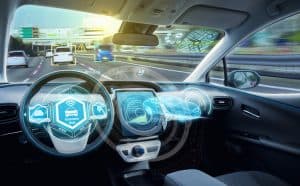 The recent death of a woman pedestrian by an Uber autonomous SUV has sparked concern about the safety of self-driving vehicles. Just as companies are experimenting to address and fix safety issues, states are experimenting with how much they should regulate the tests and the technology itself.
The recent death of a woman pedestrian by an Uber autonomous SUV has sparked concern about the safety of self-driving vehicles. Just as companies are experimenting to address and fix safety issues, states are experimenting with how much they should regulate the tests and the technology itself.
Manufacturers of these robotic cars driven by software, not humans, claim that their vehicles should increase safety because vehicle operation won’t be dependent on distracted or drunk drivers. The technology, which is still fairly new, still needs a lot more testing before consumers and states should agree to its widespread use.
Current state and federal regulations
Some states, such as Arizona and California, are starting to allow autonomous car makers to test their self-driving (and driverless cars) on the state roads instead of private controlled environments. The U.S. Senate is considering allowing self-driving car makers to be exempt from some current federal safety laws and even some state safety laws. The U.S. House has already passed similar legislation. Some Senators, such as Connecticut Senator Richard Blumenthal, are complaining that the recent Uber death shows that extreme caution is needed.
Arizona officials relaxed regulations of autonomous vehicles to entice companies like Uber, Lyft, and Waymo (Google’s self-driving company) away from California to Arizona. The regulations were lifted by an executive order of Arizona governor, Doug Ducey. The Arizona car accident happened just weeks before California was ready to approve similar autonomous testing provided there was a backup driver. Now California is waiting for the results of the Arizona investigation before it lifts the regulation requirements.
California requires that the number of times a human has to take over the controls must be reported. Between December 2016 and November 2017, Waymo (operating in California) recorded 63 times when the driver had to take control of its cars – about once every 5,600 miles. Waymo claims that its cars have driven more than 5 million miles and Uber cars have driven more than three million miles without a death – until now. One Tesla driver did die in 2016 when a self-driving vehicle collided with a tractor-trailer, though federal officials ruled that the car was not defective.
Researchers at Arizona State University say that this recent Arizona death is a warning that autonomous driving technology need more testing.
Whether you are struck by a care with a driver or without one, you need the help of experienced Nashville car accident lawyers. The attorneys at Rocky McElhaney Law Firm have the experiences and resources to help victims get justice. Please schedule an appointment by calling 615-246-5549 or by completing our contact form. We see clients who live in Nashville, Henderson, and Knoxville or the surrounding areas.
